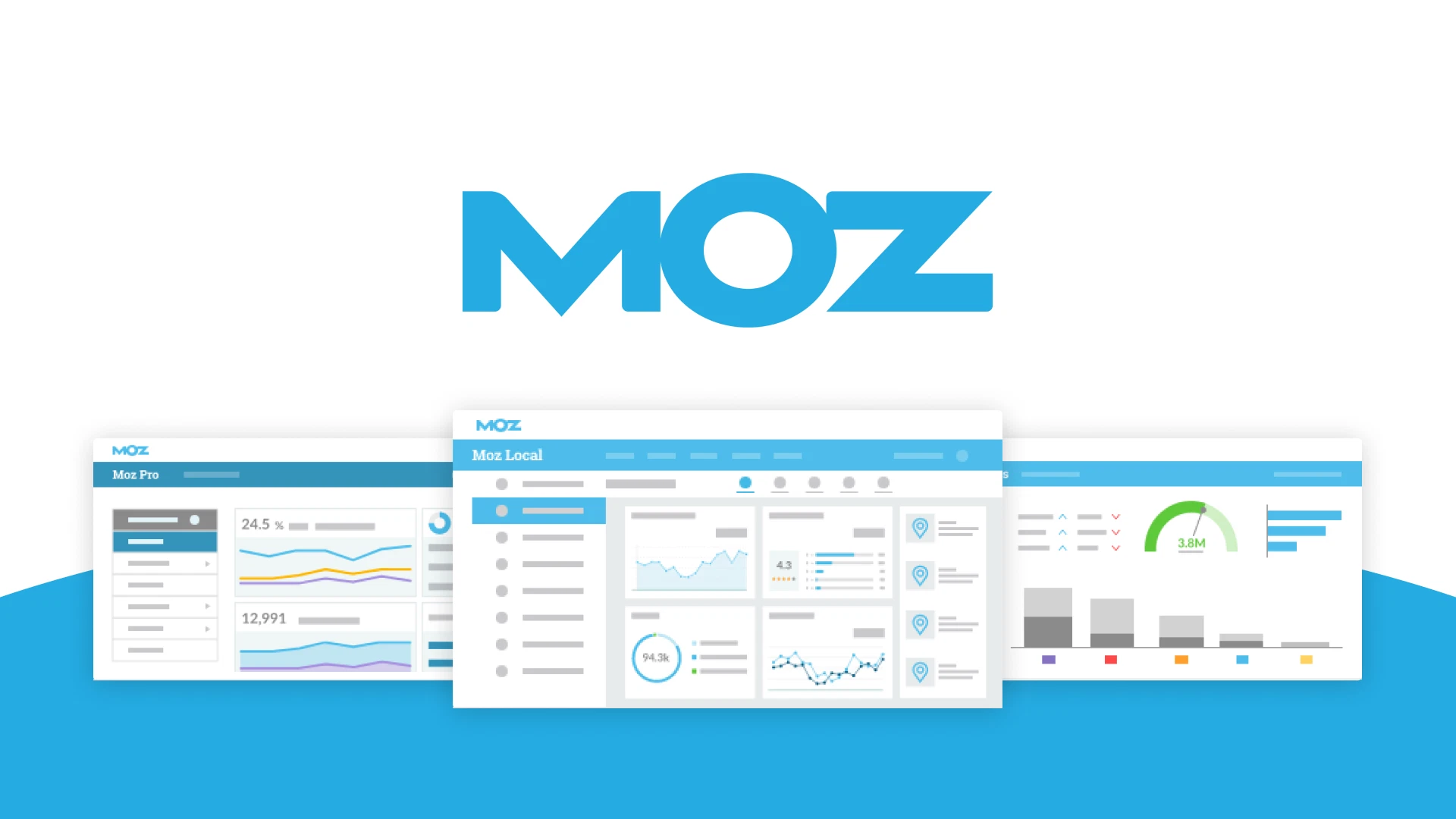You feel that you are doing everything right, yet your small business SEO have never cracked 1,000 unique visitors per month, and only a few of your posts are getting search traffic. If your posts does not receive a few thousand search visits a month, then you are doing something wrong. Here are reasons, from SEO Specialist, why you do not get as much search engine traffic as you deserve.
Small Business SEO Best Practices
The title is the most important part of your small business SEO, in order to generate traffic. When you search for something in Google, the keyword you’re looking for is almost always in the title. Therefore, if you want to start using specific keywords, they should appear in your title and in the content.
If your small business SEO is not indexed, search engines won’t send you traffic. So, how do you index? Google (and other search engines) will index your site automatically, but here are some steps you can speed up the process by creating an XML sitemap with the Google plugin, then submit it via the Webmaster Tools. As your site becomes more popular, search engine spiders will visit your site more frequently and index your content faster.
An old practice in small business SEO was that Google’s search results were somewhat based on the number of tweets, which has appeared to be in a direct correlation with the ranking on search results. URLs for more than 7,500 tweets averaged fifth place for their keyword. It makes sense too. If people share your blog, it’s a good sign that the search results are worth it.
The first step in writing a blog post is to determine what people want to know. Ignoring this step is like starting a business without trying to find out what people want to buy. If you want to generate search traffic, you must search by keywords. I know I’ve said it here and there, but to be honest with yourself, how often do you actually do it? To help you determine which keywords people are searching for, you can use the Google Keyword Planner or SEMRush.
In small business SEO, one way to create an ultimate resource a particular keyword is to link to other resources within your blog post, both externally and internally, which makes your blog more valuable, plus one of the best ways to get backlinks is to start by creating links to other bloggers.
In the same time, once you know exactly which keywords are popular, you need to create content specifically for those queries. As you do your research, create a list of relevant keywords for your audience, keep those which are searched more than 500 times a month, then write a blog post for each keyword. If you need help to make it, we are here to assist.
Search engine optimization for your images will help your Google rankings in two ways : you will probably get traffic through Google’s image search, and this is another way to tell the search engines what your main keyword is. In small business SEO, to optimize your images, remember to save them in [keyword-sentence.png] format before uploading them to your site, and add a title tag to it afterwards. If you have questions about optimizing your images, please let us know and we will do our best to help you.
Remember that Google’s job is to provide relevant, high-quality search results. Ideally, the best and most complete web page for each keyword will always be in the first rank. For example, if you write a 100-word post on “How to get traffic in search engines” when someone else has written a 3,000-word article that covers every nook and cranny of the subject, Google will find a way to place the 3,000-word post up and drop yours by the wayside. Your goal with every blog post is to create the ultimate resource for that particular keyword. 2,000 words per blog post is a good rule of thumb.
One of the benefits of using WordPress for your small business SEO is that it generates easy-to-index pages. If your website is easy to index, Google will rank it better. This platform is widely regarded as the best one for website creation, in part because all the best online resources have been built for it, and people who use WordPress keep recommending it in fact. The key here is to have a well coded website, which WordPress does easily and without much technical knowledge.
Once you’re in the habit of searching for keywords, choosing a specific one, and delivering content, it will become easy to emphasize on writing for search engines. Your writing will become a routine. If your small business SEO has to follow these steps, it’s because they make the most effective way to find out what people want to read and spread.
If you are a small business owner, you have probably heard of search engine optimization (SEO) countless times. It’s one of those buzzwords that everyone claims to know about but few truly understand in depth. Yet, effective small business SEO isn’t a luxury or something nice to have, but an essential for surviving and thriving in an increasingly competitive digital marketplace.
SEO is the practice of making your website more visible in search engine results pages (SERPs) for queries relevant to your business. This visibility can make the difference between a trickle of traffic and thousands of potential customers discovering you every month. For many small businesses, search traffic is one of the cheapest, highest-ROI marketing channels available. Unlike paid advertising, which stops as soon as you stop paying, small business SEO can deliver sustained, long-term traffic if done properly.
However, small business SEO is notoriously tricky. Unlike large corporations with teams of in-house search engine optimization experts or the budgets to hire expensive agencies, SMEs usually have to figure it out on their own or with very limited help. As a result, many small business websites languish with poor rankings, minimal traffic, and disappointing results, despite investing time and effort into blogging or updating their sites.
A key reason for this struggle is that small business SEO is often misunderstood as a collection of quick hacks or shortcuts rather than a holistic, long-term marketing strategy. Business owners often hear partial advice about keywords, backlinks and blog posts. While these tips are true in isolation, success comes from understanding how all the parts work together to match what search engines, and, more importantly, users, want.
To begin with, small business SEO should always be user-focused. Search engines exist to serve users by helping them find the best answers to their questions. Google, in particular, has spent decades refining algorithms to reward the most useful, authoritative, relevant, and high-quality pages. Trying to game the system with tricks and shortcuts is almost always doomed to fail.
Instead, successful small business SEO starts with understanding your audience. Who are your potential customers ? What questions do they have ? What words do they use when searching ? How do they decide what to buy ? Without answering these questions, any SEO effort is likely to miss the mark.
Keyword research is the cornerstone of this understanding. You can’t just guess what people are searching for, but you need to know. Tools like Google Keyword Planner, SEMRush, Ahrefs, Moz, or even free options like Ubersuggest can help you identify not only high-volume keywords but also long-tail variations that signal strong purchase intent or highly specific needs. For a small business, phrases of 3-6 words or more are often the best bet, as they may have lower search volumes, but also tend to have less competition and higher conversion rates.
Once you have your keyword list, you need to prioritize. Chasing every keyword in small business SEO is impossible and inefficient. A practical approach is to pick the ones with good search volume, often 500+ searches monthly is a reasonable benchmark, though even lower can be fine for very specific niches, realistic competition levels, and high relevance to your business. Then, plan to create dedicated content for each one.
The reason why many small businesses fall short is they treat SEO as an afterthought, writing whatever they feel like and hoping Google will reward them. That rarely works. Your content needs to be designed intentionally to satisfy the user’s search query better than anything else on the internet.
When people are searching, they don’t want a vague, 200-word page with your business address, but details including your services, prices, staff qualifications, photos, reviews, location map, appointment options, and maybe even helpful tips on the field. The better your small business SEO matches what the user actually wants, the more likely Google will rank it highly.
This is why content is king isn’t just a slogan, but the foundation of SEO, but not just any content. It should be of high-quality, in-depth, well-organized, and genuinely useful. Short, thin, repetitive, or spammy content will fail, especially as Google’s algorithms have become more sophisticated with updates like Panda, Hummingbird, and BERT, which focus on understanding natural language and rewarding relevance.
Length can help, too. While there’s no magic number, multiple industry studies have shown that longer content, from 1500 to 3000 words, tends to rank better on average. This isn’t because Google has a word-count requirement, but because longer content can often answer questions more comprehensively, cover subtopics, and demonstrate authority in small business SEO.
Of course, length without quality is worthless. Rambling or filler-laden content won’t do you any favors. Instead, aim to create the definitive resource on your topic. Ask yourself if someone landed on this page, would they need to go back to Google to find more answers ? If yes, your content isn’t finished yet.
However, content is only the beginning. Your site also needs to be technically sound so that search engines can crawl and index it properly. This is where many small businesses get tripped up. They build their site on outdated platforms, forget to set up proper sitemaps, ignore indexing settings, or overlook simple fixes.
To make your site SEO-friendly from a technical standpoint, you need to ensure your site is easily crawlable. That means no accidental noindex tags blocking important pages, a clean robots.txt file, and an XML sitemap submitted to Google Search Console. Page speed is now an important ranking factor, and it also directly affects user experience and conversion rates. Tools like Google PageSpeed Insights or GTmetrix can help you diagnose issues. Over half of all web searches happen on mobile devices, and Google indexes mobile-first. Responsive design isn’t optional anymore.
In small business SEO, security is a small ranking factor, but it also builds trust with users. Internal links help both users and search engines understand your site structure and discover related content. Avoid long, parameter-laden URLs in favor of something short and relevant. Beyond technical SEO, there’s on-page optimization, which refers to how you use your target keywords and structure your content. Best practices are including the target keyword in your page title, using it naturally in your meta description, headings, as well as throughout the content, and avoiding keyword stuffing, as Google is good at detecting unnatural repetition.
Remember to use variations and related terms to signal topical depth for semantic SEO. You can also add structured data where relevant, to help Google better understand your content and enhance your listings with rich snippets. Images also deserve optimization. Many small business sites upload gigantic images that slow down load times or use generic file names. Instead, you should compress images to reduce file size without sacrificing quality, name images descriptively using target keywords when appropriate, and add alt text that describes the image in natural language. This is both an accessibility best practice and an SEO signal.
Off-page is another critical component of small business SEO. This refers to the signals you generate outside your own website, telling Google you’re credible, trustworthy, and popular. The most important of these is backlinks, which are links from other websites to yours. Google treats these as votes of confidence. If high-authority, reputable sites link to you, that’s a strong signal that your content is valuable. Small businesses often struggle here, because they don’t know how to attract links, but with effort, you can build them.
Remember to create genuinely useful, shareable resources, as well as building relationships with other local businesses or industry bloggers, guest posting on relevant sites, earning press mentions through PR efforts or newsworthy events, in addition to getting listed in reputable local and industry directories. Another overlooked aspect is local small business SEO. If you serve a specific geographic area, optimizing for this category of search engine optimization is essential.
This includes claiming and optimizing your Google Business Profile listing, ensuring your business name, address, and phone number are consistent across all online directories and citations, encouraging satisfied customers to leave positive reviews, creating localized content which targets geographic keywords, in addition to building local backlinks from chambers of commerce, local news sites, or partner businesses.
Local small business SEO is incredibly powerful for small businesses because it levels the playing field. You may not be able to outrank Amazon or Walmart for broad product terms, but you can absolutely show up for relevant searches if you optimize properly. Measurement is also vital. Too many small businesses put up a website, maybe write a few blog posts, and then never check the results. You can’t improve what you don’t measure. Use tools like Google Analytics and Search Console to track which pages get traffic, which keywords you’re ranking for, how users behave on your site, and where you’re losing potential customers.
These insights will help you refine your strategy over time. Small business SEO is not a one-time project but an ongoing process of testing, learning, and improving. It’s also worth talking about mindset. Many small business owners expect immediate results from small business SEO and get frustrated when it doesn’t deliver overnight. Unlike paid ads, which can start driving traffic the same day, search engine optimization typically takes months to see significant gains. That’s because Google has to discover, crawl, index, and evaluate your content, and because it needs to see signs of trust and authority before ranking you highly.
That long timeline is exactly what makes small business SEO so powerful. Once you build up your rankings, they can deliver traffic for months or years with minimal ongoing cost. That’s a huge competitive advantage, especially for small businesses with limited marketing budgets.
To succeed, you need patience, consistency, and a willingness to learn. SEO isn’t rocket science, but it isn’t trivial either. If you invest the time to understand your audience, create genuinely valuable content, ensure your site is technically sound, and build a trustworthy reputation online, you can absolutely compete with larger rivals and attract the customers you want.
Small business SEO is a multifaceted discipline that requires careful planning, continuous effort, and a user-first mentality. It’s not about gaming search engines with cheap tricks, but building a better online presence that truly serves your customers. The payoff can be transformative, with sustainable, high-quality traffic that drives real business results.
If you’re a small business owner looking to grow, investing in SEO is one of the smartest moves you can make. However, remember that it’s not a sprint, but a marathon. Approach it with patience, integrity, as well as a commitment to delivering value, and you’ll reap the rewards for years to come.











